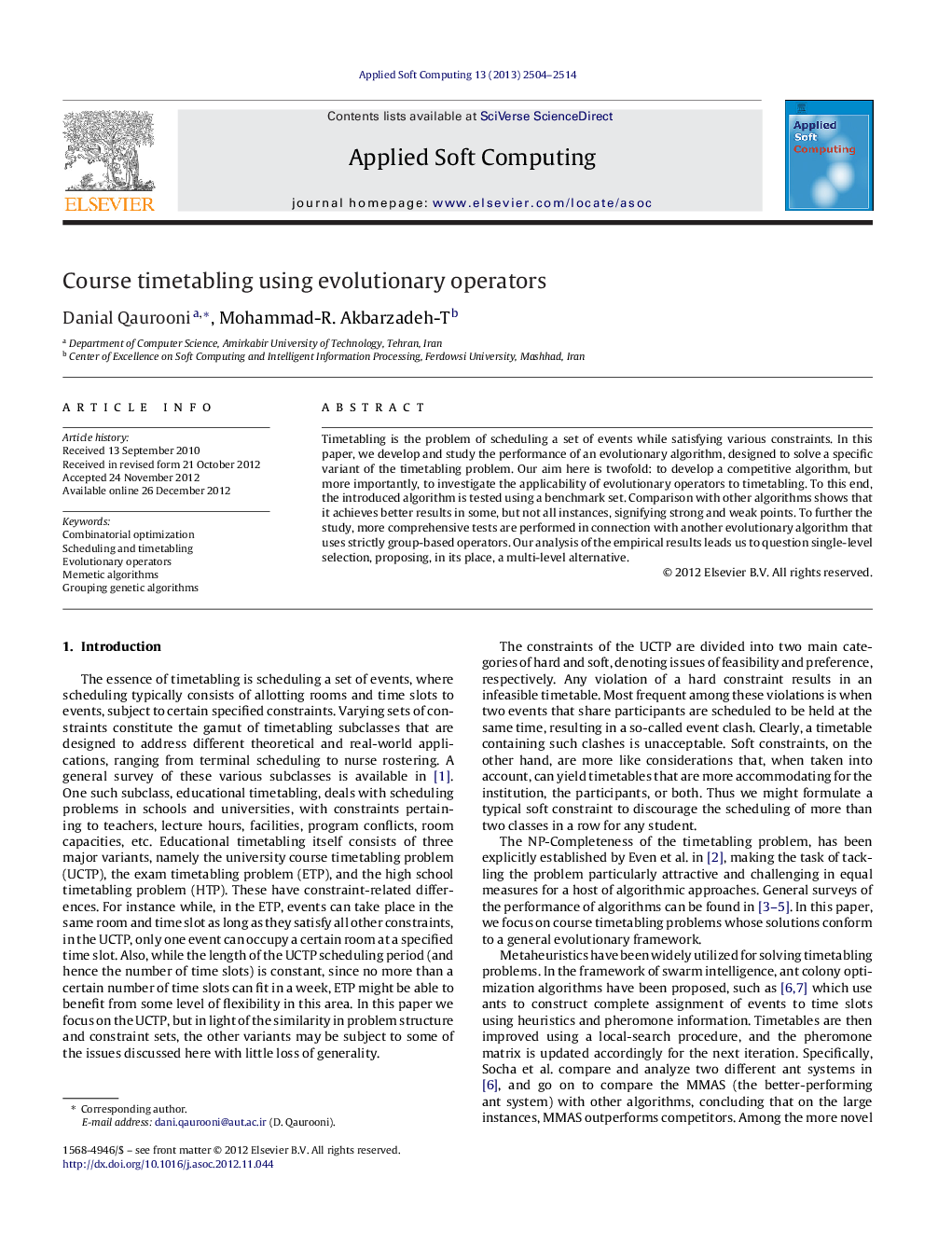| Article ID | Journal | Published Year | Pages | File Type |
|---|---|---|---|---|
| 495943 | Applied Soft Computing | 2013 | 11 Pages |
Timetabling is the problem of scheduling a set of events while satisfying various constraints. In this paper, we develop and study the performance of an evolutionary algorithm, designed to solve a specific variant of the timetabling problem. Our aim here is twofold: to develop a competitive algorithm, but more importantly, to investigate the applicability of evolutionary operators to timetabling. To this end, the introduced algorithm is tested using a benchmark set. Comparison with other algorithms shows that it achieves better results in some, but not all instances, signifying strong and weak points. To further the study, more comprehensive tests are performed in connection with another evolutionary algorithm that uses strictly group-based operators. Our analysis of the empirical results leads us to question single-level selection, proposing, in its place, a multi-level alternative.
Graphical abstractFigure optionsDownload full-size imageDownload as PowerPoint slideHighlights► We develop a memetic algorithm to solve a set of benchmark university course timetabling problems. ► Our memetic algorithm performed better in case of small and medium instances, but fell behind one other algorithm in the case of big instances. ► We argue that single level group-selection can work to the detriment of evolutionary algorithms and argue for a multi-level selection instead.
